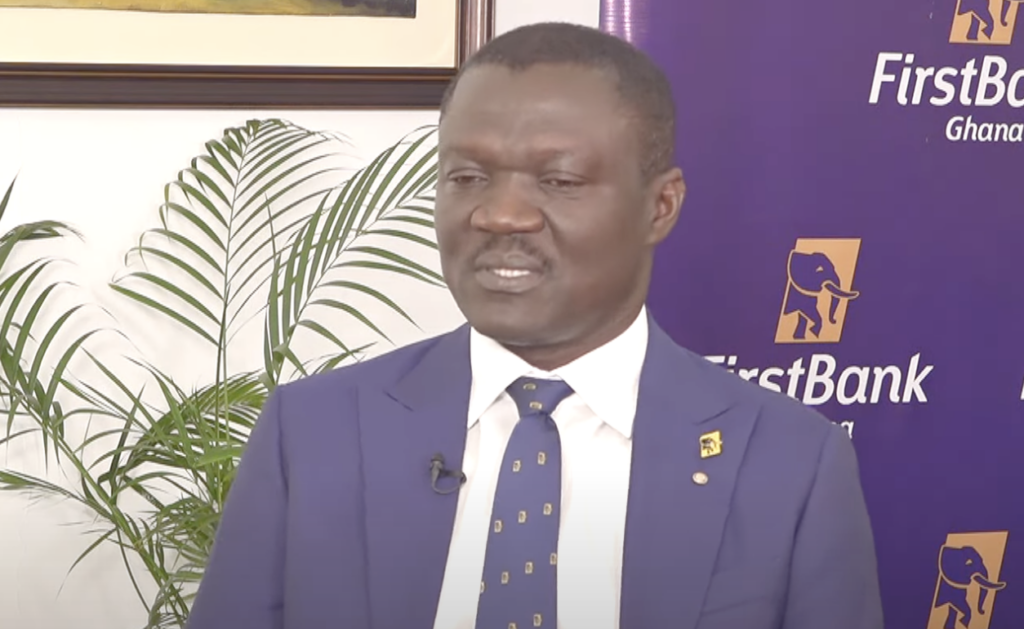Managing Director of First Bank Ghana, Victor Yaw Asante, has shed light on how his institution navigated the challenges posed by Ghana’s Domestic Debt Exchange Programme (DDEP) without suffering significant setbacks.
Speaking on Joy News’ PM Express Business Edition on Thursday, February 27, he detailed how the bank’s strategic decisions shielded it from excessive exposure to government bonds, a key factor in its relative stability amid the financial turbulence.
“We stuck to our risk portfolio, our risk guidelines and so on,” Yaw Asante stated.
“So when you do that, when there’s a problem in any particular area, you still are capped.”
Unlike many other financial institutions that faced severe liquidity constraints due to their heavy exposure to government bonds, First Bank Ghana remained cautious.
Yaw Asante admitted that while the temptation to buy into government securities was strong, the bank deliberately avoided over-reliance on them.
“Even though it became easier to, for example, buy government bonds and so on, we didn’t. We didn’t go for that temptation at all,” he stated.
According to him, when the DDEP was first implemented, the financial sector experienced significant challenges, with many banks struggling to recover from the shocks.
He acknowledged that some banks had to take drastic measures to mitigate losses.
“In the last two or three years, when it started, we had the least exposure. We and a few other banks, quite a number of banks, did have some significant exposure,” he explained.
“The first year of the free implementation was tough, but what they did was to now just make sure they went beyond just the reprobations and worked hard at trying to see what they could recover.”
He noted that, following the initial setbacks, some banks gradually wrote back previously withheld assets, leading to an apparent improvement in their financial performance.
However, Asante cautioned that such recoveries should not be mistaken for core financial strength.
“I think after last year, some of them were able to write back some of the things they initially withheld. I mean, it depends on how the performance goes.
“So that happened, and then you could see that banks were now giving very strong performances,” he observed.
“But quite a bit of the performance was also because people were writing back what they had initially withheld, because we didn’t know what the immediate future held.”
The First Bank Ghana MD stressed the importance of prudent financial management, particularly in uncertain economic conditions.
He reiterated that while banks may appear to be performing well due to the reversal of previous write-offs, true financial health should be assessed based on core operations.
“If you strip off extraordinary items, and you go to the core performance of the year, then you can start talking,” he noted.
“So it could have been worse, and we are grateful that it didn’t. It was as bad as that. But what you see is also a measure of the fact that people are putting back something they didn’t recognize and as a bank, you have to do that.”
DISCLAIMER: The Views, Comments, Opinions, Contributions and Statements made by Readers and Contributors on this platform do not necessarily represent the views or policy of Multimedia Group Limited.

